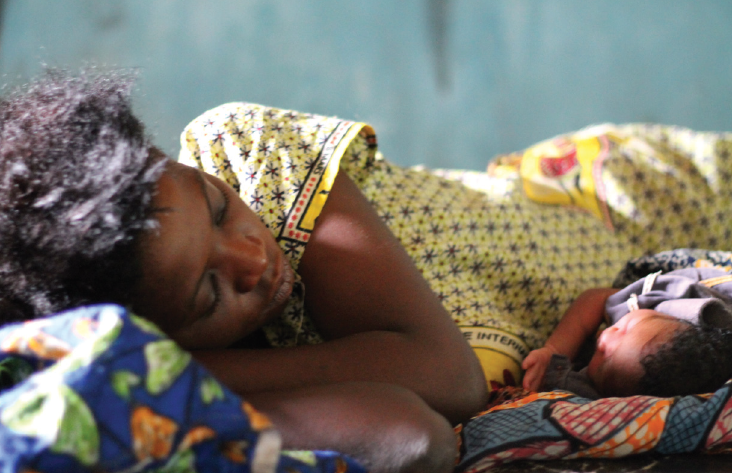Malaria can have devastating consequences for the mother resulting in babies being born with a low birthweight, which makes them vulnerable during the first year of life. A novel study was published today in The Lancet Global Health to look at alternative drug combinations to prevent malaria in pregnancy. The study was led by researchers at the University of California in San Francisco who worked with partners from the London School of Hygiene & Tropical Medicine; the Liverpool School of Tropical Medicine; the US Centers for Disease Control and Prevention; the Kenya Medical Research Institute; Infectious Diseases Research Collaboration in Kampala, Uganda; and Makerere University College of Health Sciences.
For well over a decade, researchers carried out trials to find better drugs that could replace the antimalaria sulphadoxine-pyrimethamine (SP) for the prevention of malaria during pregnancy. SP is currently the only antimalarial drug recommended by the World Health Organization, however the malaria parasites have become highly resistant to SP, particularly in eastern and southern Africa. Three previous trials conducted by the researchers in Kenya and Uganda showed that the new antimalarial dihydroartemisinin-piperaquine (DP) is a promising alternative to SP. DP was much more effective at preventing malaria than SP. However, demonstrating superiority over SP in improving the baby’s birthweight has proven surprisingly elusive. All three trials showed that babies born to mothers who had received SP during pregnancy had higher mean birthweights, despite being born to pregnancies that had much more malaria. The research team decided to pool the data from the three trials to explore why SP remains so effective in improving birthweight despite the high levels of resistance to the drug.
They conducted a novel type of analysis, called mediation analysis, to quantify the overall, the anti-malarial and the non-malarial effects of SP and DP. The pooled analysis showed conclusively that mothers who were given DP had much less malaria, but newborns of mothers who were given SP weighed on average 69 grams more. The mediation analysis showed that the effect of SP on birth weight is mainly through non-malarial pathways and greater than the antimalarial effect of DP on birthweight.
Dr Matthew Chico of the London School of Hygiene & Tropical Medicine and senior author on the study said, “This changes the way we need to evaluate studies of preventive treatment. Mediation analysis helps us to understand how certain interventions work, and how they might be redesigned for greater impact.”
The way forward?
These findings highlight the benefits of SP beyond its use for malaria prevention and suggest that trials need to be designed to jointly tackle malaria and other causes of adverse pregnancy outcomes. To that end, Dr Chico is leading the ASPIRE Trial in Zambia with the Tropical Disease Research Centre where SP and DP are provided to pregnant women along with metronidazole to improve birth outcomes by reducing malaria and curable sexually transmitted infections.
LSHTM's short courses provide opportunities to study specialised topics across a broad range of public and global health fields. From AMR to vaccines, travel medicine to clinical trials, and modelling to malaria, refresh your skills and join one of our short courses today.

